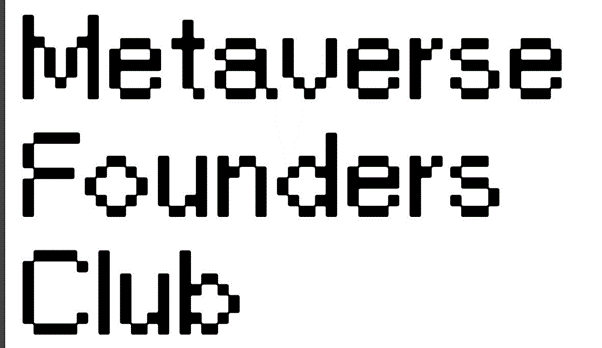House Democratic leadership is checking the pulse of lawmakers to see if they’d still back forcing a vote on the Senate-passed national security bill through a discharge petition amid ongoing gridlock, according to two people familiar with the matter.
House Minority Leader Hakeem Jeffries has vowed to use “all options” to break the logjam, including a discharge petition, which would require a majority of House members to sign on. Every House Democrat had signed onto a shell petition last year as part of a last-ditch effort to force floor action on a debt limit bill.
But progressive lawmakers in recent days have raised concerns about supporting the legislation if it granted aid to Israel without conditions, meaning more Republican support would be needed to make up for defections among liberal lawmakers.
That’s prompted leading Democrats to now do the rounds to ask where lawmakers stand on the discharge petition, according to the two people familiar, granted anonymity to speak candidly about internal caucus dynamics.
With no Republican support yet for their longshot procedural move, Democrats have largely been focused on pressuring Speaker Mike Johnson to bring the legislation to the House floor on his own. Johnson has quashed a vote on the Senate package, arguing border security provisions should be reattached to the deal.
“Right now, it’s whether or not Mike Johnson can govern and do something,” said Rep. Mark Pocan (D-Wis.), though he and other liberal lawmakers have previously argued for conditions on aid to Israel.
Rep. Ilhan Omar (D-Minn.) was blunter: “I’m not voting for it. And I’m not signing onto the discharge petition.”
She estimated enough progressives would abandon the petition so that “it wouldn’t work.”
Rep. Alexandria Ocasio-Cortez (D-N.Y.) said she’d “likely not” support the Senate package but demurred on removing her name from the discharge petition, saying: “I think we’re all on the same page here collaborating as a caucus.”
The chair of the Progressive Caucus, Rep. Pramila Jayapal (D-Wash.), downplayed the divisions, arguing Dems won’t “move a discharge petition on something that we don’t agree on.”
“Everyone signed a discharge petition with a very clear commitment from leadership that it wouldn’t be used for things that we wouldn’t agree on,” Jayapal said. “That’s not an issue. People aren’t taking their names off of it or anything.”
The Senate cleared its $95 billion emergency funding bill this week that includes aid for Ukraine, Israel and Taiwan with bipartisan support.
Democrats have rallied around previous Ukraine aid packages, but they’re split on support for Israel over its conduct of the war in Gaza. House Republicans, conversely, have sidestepped President Joe Biden’s request for more Ukraine aid, but have held two votes on bills that carve out aid just for Israel.
Those dynamics could make getting 218 signatures for a discharge petition, a move which rarely succeeds, an uphill battle for aid to all three U.S. partners.
“That is certainly a challenge,” said Rep. Adam Smith, the top Democrat on the House Armed Services Committee, referring to members of his party backing off a discharge effort. “And the timing. I mean, we’re running out of time.”
Democrats have instead pointed to Johnson, arguing it’s the embattled speaker’s job to act after a big bipartisan vote in the Senate.
“The best path forward is for them to give us a vote on that. If they want to put up an alternative, offer an amendment, you know, there’s different ways to do it,” Smith said. “But the best path forward is to give us a vote on the bipartisan agreement that was negotiated over months that addressed every issue they said needed to be addressed.”
“I think most Democrats are unified around getting aid to Ukraine, and the issue is really the Republicans not bringing it forward,” added Rep. Ro Khanna, a progressive California Democrat. “I first want to see if we have any commitments of Republicans to sign it, which it seems to me unlikely.”
Some progressives may sign onto the discharge petition to get the bill onto the floor, while keeping their options open when it comes time to pass it. That’s what Rep. Raul Grijalva (D-Ariz.) said he plans to do.
“I think you’re going to see possible unanimity on our side because [passing the bill is] a separate vote, and people can make that decision later,” Grijalva told POLITICO. “I’m going to bite that bullet when it’s on the floor.”
The House Appropriations Defense Subcommittee’s top Democrat, Rep. Betty McCollum (D-Minn.), said progressives may put aside their objections to the Israel aid because the bill also contains humanitarian aid to Gaza.
“We really want aid to go to Gaza, where people need it so desperately,” McCollum told POLITICO.
Potentially recruiting Republicans to get to the needed 218 signatures for the petition could be tough for Democrats, though some are optimistic about their chances given the GOP’s own internal discord.
Rep. Gerry Connolly (D-Va.), a former president of the NATO Parliamentary Assembly, argued that while signing a discharge petition means defying Johnson, his right flank defies him regularly, therefore making it less of a taboo.
“It’s certainly not an unthinkable act,” Connolly told POLITICO. “Are you willing to make your [party] leadership a little unhappy for the sake of reasserting American leadership and helping the Ukrainian people? I think that’s the choice people really have to wrestle with.”





